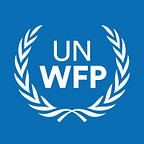Orange the world! Lending voice against Gender-Based Violence
Every year, the United Nations calls for action to end Gender-Based Violence (GBV) through the 16 Days of Activism Campaign from 25 November to 10 December. The concept of GBV encompasses all forms of violence inflicted based on gender differences.
By Aradhana Srivastava
Whether violence — physical, sexual, psychological, and economic — by intimate partners or by others, it is unacceptable. It is against the principles of human rights and justice. It undermines progress in countries and societies. There can be no development in the true sense of the term unless all women, men, girls, and boys can realize their full potential, free from threats of violence and abuse. The 16 Days of Activism Campaign is an opportunity to raise our collective voice against GBV and create awareness about it across society.
The year 2020, has been difficult and devastating for economies and communities with the unprecedented Coronavirus pandemic that has disrupted individual and public lives. As the pandemic crosses over to another year, the global focus of the campaign is to shed light on the increased inequalities due to the COVID-19 pandemic, and the corresponding response measures needed to combat them.
2020, 16 Days of Activism against Gender-Based Violence campaign, the theme is ‘Orange the World: Fund, Respond, Prevent, Collect!’.
Our key message for the Campaign is “COVID-19 has contributed to gender inequality and gender-based violence. We must work together towards ending both.”
Intimate-Partner Gender-Based Violence: A Shadow Pandemic
The COVID-19 pandemic and associated lockdown measures have raised significant concerns of GBV, serious enough for it to be called the ‘Shadow Pandemic.’
Increased stress levels, economic and food insecurity, unemployment, insecurity about the future, and restrictions on movement are contributing to a significant increase in domestic violence during the pandemic. It is, therefore, not surprising that across the world, countries have witnessed a conspicuous rise in domestic violence during the lockdown.
The COVID-19 pandemic has not only worsened the hunger crisis but also threatens to increase pressure on access to resources and safety nets. World Food Programme report estimates that by the end of 2020, 265 million people are likely to face starvation. There is a causal link between hunger and gender-based violence. Apart from tremendous pressure on existing resources with livelihood destroyed and economies disrupted, intra-household dynamics and patriarchy are bound to aggravate gender-based violence.
In India, domestic violence cases reported to the National Commission for Women — the nodal agency that serves as a statutory institution that works on the protection of women’s rights — between March and May more than doubled. An even greater concern, however, is the number of cases that might be going unreported, as many survivors could be trapped inside homes with their abusers, unable to escape or call for help. There is a strong basis for this apprehension as India’s National Family Health Survey of 2015–16 report cites that 86% of women who experience domestic violence do not seek help.
Our efforts are to become the voice for these silent victims.
Why is this an important campaign now?
Raising awareness on GBV is of utmost importance so that we learn to recognize and stop it when we see it taking place and empower the survivors to raise their voices and seek support. Information sharing on protective legislation against GBV, (whether on sexual harassment or domestic violence) can help to prevent and also ensure protection for those affected victims. Knowledge of GBV prevention services, such as hotlines, response centers, radio, television, and Social Media can also help in reducing GBV substantially. Promoting gender equality strikes at the root of GBV by eliminating inequalities that perpetuate violence.
Even the simplest of acts of awareness and solidarity, in the ongoing pandemic lockdown, can become a conversation driver. The WFP India team and staff decided to revisit the feeling or emotion that home evokes in people, especially in present times. The idea is to make people think about what it must be like to live in a home environment that is unsafe for women and girls. We must keep talking about this aspect as millions are homebound and away from hope and help. Images by the WFP staff have been curated with one word or phrase that people identified with being at home for nearly a year!
